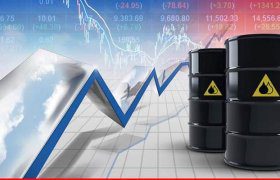Senior executives in the oil-related industries expect global demand for gasoline and diesel to return to pre-epidemic levels by the end of next year, although the re-emergence of the world’s Covid-19 could cause fluctuations in consumption again. This outlook means a decline in crude oil demand, and it is conceivable that prices will fluctuate under such circumstances. In the following, you will read the perspective of the oil market through the eyes of four big names in the oil industry.
*** Bipay oil-free landscape
The summary of BPP’s report at the Asia-Pacific Oil Conference was: The virus, government policies and social change are affecting crude oil demand, and the relentless growth of crude oil demand seems to have stopped.
BP was thus the first large company to announce the end of a period (peak in oil demand) that was expected to end in a decade or more. “Oil consumption may never return to pre-Corona levels,” BPP said in a report yesterday. Beepy believes oil demand may have already peaked by now. This belief is contrary to the views of other energy giants or members of OPEC and other oil giants.
Yet the British oil giant is charting a different future, where oil supremacy is challenged and eventually diminished. Six months after taking over as CEO of BPP in August, Bernard Looney announced that the company would cut oil and gas production by up to 40 percent over the next decade and spend $ 5 billion a year on major renewable energy projects.
*** Reducing demand for crude oil
BPP outlook shows that crude oil demand will decrease by 50% by 2050, and in another scenario this amount is reduced to 80%. Under normal circumstances, crude oil demand may improve to nearly 100 million barrels per day over the next 20 years, according to the report.
BP is not the only major oil company that intends to reduce its oil and gas production. Royal Dutch Shell, Total and other European companies are also involved in such projects. According to Spencer Dale, chief economist at BP, the damage caused by the Corona outbreak crisis will reduce the demand for fossil fuels in all future scenarios, marking a historic and unprecedented decline in fossil fuels in the global energy basket. BP’s pessimistic outlook is in stark contrast to the International Energy Agency, which in November predicted that demand for oil would grow steadily by 2030 to 106.4 million barrels per day by 2040. BPP had raised the issue of “more energy” last year, with oil demand steadily rising to about 130 million barrels per day by 2040, but this year there was no such scenario in the company’s report.
*** Trafigura’s concern about the state of the oil market
According to a report published in Bloomberg, the world commodity trading giant Trafigura believes that the oil market will get worse before it recovers. Emphasizing that demand is stagnant, the company believes that excess supply is returning to the oil market. “We expect oil prices to recover by the end of this year,” Ben Lacock, Trafigura’s chief oil trader, told the conference. According to the chief executive, crude oil demand is stuck at 92% of pre-corona levels.
Trafigura was one of the first companies to predict a drop in crude oil demand in March and April. Contrary to OPEC Plus efforts, the company now sees the oil market on the verge of entering another downturn. “Market conditions will worsen in the next few months, and I think a further drop in oil prices is inevitable,” Lakok said in an interview with Sunderland Plate Global. According to the head of oil trading in Trafigura, it is currently difficult to supply crude oil to the heavy market and overcome the current situation. However, Lakok expects prices to improve from the first quarter of next year.
*** Citigroup message to oil market cows
With many oil giants pessimistic about the future of the oil market, Citigroup expects $ 60 oil to return next year. “Brent oil will average $ 55 a barrel in 2021,” said Ed Morse, head of commodity research at City. According to Morse, the institute’s main scenario is that prices will rise as the market balances.
According to Citigroup, by the end of next year, global crude oil consumption will reach 2019 levels, ie about 101 million barrels per day. However, the commodity trading giant expects crude oil reserves to grow by the end of this year due to weak demand, and the market will be worse than it is in the next one or two months. Morse believes a return of oil above $ 60 a barrel could be short-lived as higher prices will push US production back. He also pointed to unexpected factors for the oil market, including whether Iranian products will return to the market significantly.
*** Return of oil demand by the end of 2021
The CEO of the Vitol Group predicted that global demand for oil in the transportation sector, excluding jet fuel, would return to pre-Corona levels by the fourth quarter of 2021. Trafigura, which is one notch lower than Vitol, expects jet fuel consumption to return between 2024 and 2025. Vitol also believes that demand for jet fuel remains an exception, and that the fuel market has a long way to go before it can be revived, as evidenced by the virtual Asia-Pacific Oil Conference Process.
According to Reuters, Russell Hardy said at the Asia-Pacific Virtual Oil Conference that global oil reserves grew by 1.2 billion barrels in storage tanks and floating tanks after the April OPEC meeting. “The market is slowly digesting surplus oil reserves,” he said. About 300 million barrels of stockpiles have been reduced this year, and the Vitol Group expects a similar volume of oil to be extracted by the end of this year. By 2021, the market is likely to consume the same amount of oil in reservoirs, and reserves will return to normal by the end of next year.
According to the report, for the first time in 36 years, the Asia-Pacific Petroleum Conference (APPEC) is being held virtually due to travel difficulties in the wake of the Covid-19 pandemic outbreak. This conference is the largest gathering of Asian oil traders.
این مطلب بدون برچسب می باشد.











ثبت دیدگاه